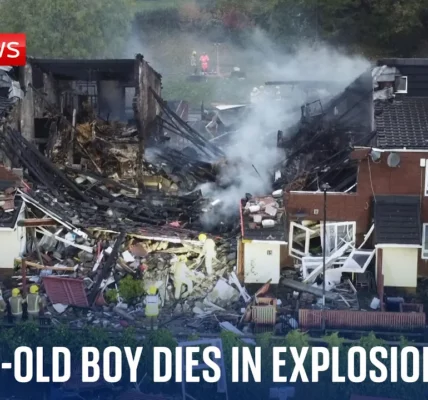Iran Launches Ballistic Missile Attack Against Israel: A Detailed Report

This article provides an in-depth analysis of the recent Iranian missile attack on Israel, the response by US military forces, and the broader implications for regional security and international relations.
Introduction
On a tense day in the Middle East, the Iranian government launched nearly 200 ballistic missiles targeting various locations across Israel. This aggressive act has raised alarms globally, prompting immediate responses from both Israeli and US military forces. In this report, we will explore the details of the attack, the collaborative defense efforts, and the ongoing geopolitical ramifications.
Overview of the Missile Attack
Early reports indicated that Iran executed a coordinated strike against Israel, utilizing a significant number of ballistic missiles. The attack’s timing and scale have been described as unprecedented and have escalated tensions in an already volatile region.
Nature of the Attack
The Iranian missile strike involved nearly 200 missiles aimed at civilian and military targets within Israel. The specifics of the targets remain under investigation, but early assessments indicate a focus on strategic infrastructure.
US Military Involvement
The United States military played a crucial role in the defense of Israel. Here are key points regarding the US involvement:
- US Naval destroyers collaborated with Israeli air defense units.
- Intercepting missiles was a priority, utilizing advanced missile defense systems.
- President Biden and Vice President Harris closely monitored the situation from the White House.
Assessment of Damage and Casualties
As of the latest updates, the situation remains fluid. Initial reports suggest that there have been no confirmed deaths in Israel resulting from the missile attacks. However, there are reports of casualties among Palestinian civilians in Jericho, adding complexity to the already tense atmosphere.
Current Casualty Reports
While Israeli defenses were largely successful in intercepting the missiles, the following points summarize the current understanding of casualties:
- No Israeli casualties reported as of the latest update.
- One confirmed Palestinian civilian casualty in Jericho.
- No damage reported to aircraft or strategic military assets in Israel.
Response and Future Actions
The US administration, in collaboration with Israeli officials, is actively assessing the situation to determine the appropriate response to Iran’s aggressive actions. This section provides insights into the ongoing discussions and strategic considerations.
Consultations with Israeli Authorities
High-level discussions have occurred between US and Israeli officials, focusing on immediate and long-term strategies:
- Evaluating the effectiveness of missile defense systems.
- Planning potential retaliatory measures if deemed necessary.
- Ensuring the safety of US personnel in the region.
Potential Retaliatory Measures
The US has signaled that there will be “severe consequences” for Iran’s actions. While specific retaliatory measures have not been disclosed, the administration emphasizes a steady and calculated approach.
Geopolitical Implications
The implications of this missile attack extend beyond Israel and Iran, impacting regional stability and international relations. This section explores the broader geopolitical context and potential future scenarios.
Impact on Regional Stability
The attack has the potential to shift the balance of power in the Middle East. Key considerations include:
- Increased military readiness among neighboring countries.
- Potential for escalated conflict involving US forces in the region.
- Influence on US foreign policy regarding Iran and its proxies.
International Reactions
Global leaders are observing the situation closely. The response from key international actors could influence future diplomatic relations:
- European Union’s stance on sanctions against Iran.
- Responses from Middle Eastern allies regarding military support for Israel.
- Potential UN discussions on peacekeeping efforts in the region.
Conclusion
The Iranian missile attack against Israel marks a significant escalation in Middle Eastern tensions. As the situation unfolds, the collaboration between the US and Israeli military forces demonstrates a united front against aggression. The focus remains on protecting civilian lives and assessing the broader implications for regional stability. Moving forward, it is crucial to monitor developments closely and prepare for potential responses.
For more updates on this evolving situation, please stay tuned to our future articles and analyses.
“`




